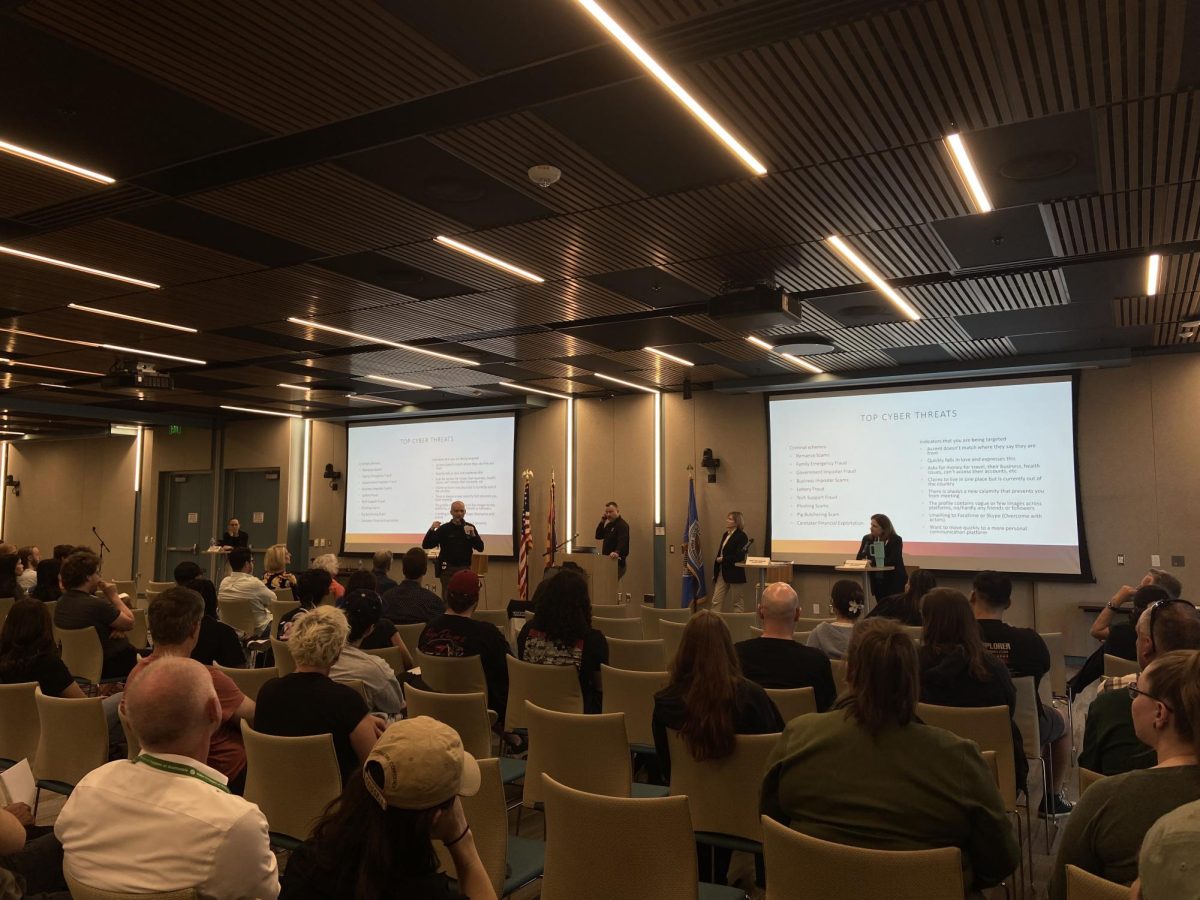Students and local residents of all ages gathered at Scottsdale Community College last week for an informative and interactive cyber security event, presented by the college’s computer information systems department.
For about two hours, guest speakers from the United States Secret Service as well as the Scottsdale Police Department discussed internet safety tips, different types of online scams, and shared their own experiences while inviting audience participation.
The point of the presentation—bring attention to the world of online crime and stress the importance of cyber security.
When the public at large is not educated on the topic of internet scams and don’t know what to look out for, they’re more likely to become victims.
The tagline for the event was “be there to become aware”.
With a new era of technology on the horizon, the event couldn’t have come at a better time.
One scheme that Scottsdale PD has seen an increase in uses artificial intelligence to steal money over the phone. Scammers can use this new technology to replicate the voice of a loved one and claim that they are in desperate need of cash because they’re in jail, have been kidnapped or are suffering a medical emergency.
This, of course, is a lie, but many people fall for it simply because they care about the person who they think they’re talking to.
Thankfully, there are ways to avoid this type of scam. The presentation highlighted the importance of staying calm, since these scammers depend on the vulnerability and emotional distress of their victims.
It is critical to pause and assess the situation before following any demands. The speakers also suggested asking questions that only the loved one would know in order to correctly identify and then verify.
Hanging up and calling the real person to confirm that they’re actually in danger — which they usually are not — is another way to ensure everyone’s safety.
Sergeant Joel Lewis, Scottsdale PD’s financial crimes unit supervisor, was at the event to support his community. He started his career by earning a business degree and working in finance. It wasn’t until his mid-thirties that he received the opportunity to work as a police officer.
“I thought, ‘you know what, I’m just going to do it.’ It turned out to be a great career,” Lewis said.
Now, he’s using his background knowledge to fight crime.
“The chief put me in this position because I understood banking and the finance world. We can’t do our jobs without having relationships with the bankers and credit card companies,” Lewis said.
There are plenty of other ways fraudsters are using today’s technological advancements for evil. Cryptocurrency is a growing, legitimate way to make money, but its explosion in popularity has opened up a new avenue through which scammers can exploit people.
Victims are often promised wealth if they invest in a certain virtual coin, and only when the damage is already done do they find out that it’s completely fake. If it sounds too good to be true, it probably is.
“Actually, the best part of [the job] is being able to arrest somebody who committed a crime against one of our citizens,” Lewis said. “It’s getting more and more rare, though, because of cyber-crime and cryptocurrency.”
Social media and dating apps also play a major role in the world of cyber scams. Romance scams use catfishing (when a person pretends to be someone they’re not with fake photos, names, etc.) and manipulation tactics to build a false sense of trust between the victim and scammer. Seniors and widows/widowers are the most common targets for this type of scam because con artists will prey upon their loneliness or lack of familiarity with social media.
The guest speakers wanted the audience to know that anyone could be hurt by a cyber scam, which is why it’s critical that everyone take the appropriate measures to protect themselves online.
People can strengthen their cyber security by changing their passwords frequently, never allowing a remote connection, not completing financial transactions over the phone and keeping software up to date.
And a general rule of thumb: stay skeptical.




















